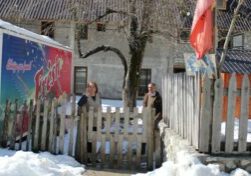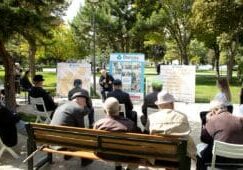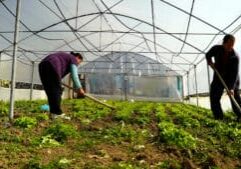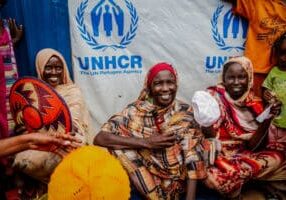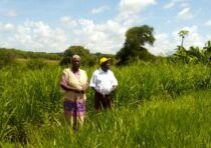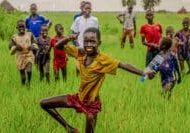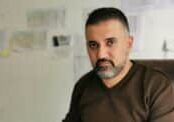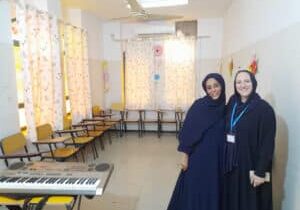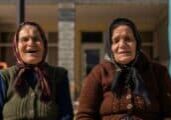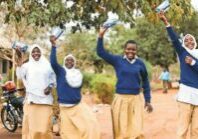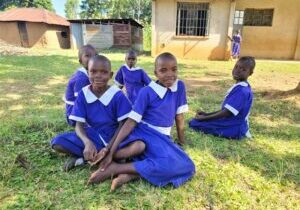Syria: Meeting the basic needs of vulnerable IDPs - and supporting their recovery and wellbeing
Falling bombs, plumes of smoke - another deadly airstrike. Yet, for the Syrian people, it is hard to know who is responsible anymore. It could be a terrorist group, the international coalition or the regime. Ten years on, Syria's brutal civil war is far from over.
13.1 million people require humanitarian assistance, including more than 2 million people trapped in inaccessible areas. Many have fled to neighbouring states - a mass exodus - where new threats surface. As fighting intensifies in the north east of the country, some Syrian refugees and IDPs have made a break for 'home'. Families return to face crippling food shortages and scarce access to food, water and healthcare - a land once steeped in history, reduced to rubble.
The toll on Syrian women has been particularly ruthless. Many are now the sole providers for their families, after losing husbands and fathers to the war. Children, traumatised and exposed, face a number of acute threats to their safety and wellbeing including sexual violence and abduction. More than a third of the country's schools are either damaged or destroyed, leaving no safe haven.
Population
Syria has a population of 24.3 million people
Poverty
90% of people in Syria are living below the poverty line
Our Reach
In 2023 267,621 people took part in our programmes
What we do in Syria
Overview
Dorcas provides emergency relief, protection and psychosocial support to vulnerable IDP's across Syria. Our community-driven programmes focus on the specific needs of women and girls - living through a major shift in gender roles - and contribute towards reconciliation and structural transformation.
Community-Based Protection
Our psychosocial support and protection programmes - together with our network of community centres - offer adults and youth a safe space to process their experiences and plan for a better future. Parents suffering chronic trauma learn how to deal with loss, manage stress and create a stable environment for their children. Our activities focus on the prevention of sexual and gender-based violence (SGBV) among women and girls and the protection of vulnerable groups such as people with disabilities and special needs.
Entrepreneurship and Early Learning
As an extension of our community-based protection services, we provide early learning opportunities for vulnerable children in Aleppo, Rural Damascus and Homs. We also offer technical and micro-business skills training for youth and adults, supporting them in the development of a micro-business or income-generating activity.
Healthcare
Following an airstrike, we work closely with the community to rebuild hospital infrastructure and make vital staff and equipment available. When the building is inoperative, we also stock mobile clinics with medical supplies that move fast to deliver critical health services in hard-hit areas. In 2019, we were able to improve access to quality healthcare in North East and South West Syria thanks to the ongoing support of the Syrian Humanitarian Fund (SHF).
Food Security
Our school feeding programme provides free schools meals to Syrian children attending public primary schools in Aleppo city and beyond - an extra incentive for parents to keep them in the system. We also deliver emergency food supplies - including food vouchers - to displaced and vulnerable families.
Hanano Community Centre - Restoring Hope
By late 2016, the fall of Aleppo was certain. Syrian forces had recaptured the largest rebel stronghold in the region. The seizure of Hanano district, in north-east Aleppo, left some 275,000 people under siege as the army's offensive continued. Deprived of food and medical supplies, many citizens fled to safety. Yet, others stayed - bound to their homeland.
For those who did, life under siege - though stabilising somewhat - is not without hardship. Some 6.5 million Syrians are acutely food insecure and an additional 4 million people are at risk of becoming so. This is largely due to the major reduction in livelihoods opportunities. With infrastructure and basic services destroyed by conflict it is very difficult for families to stay self-reliant.
Meet our Country Director…
Najla Chahda - Country Director Syria
"I am a firm believer in prioritising mental health and psychosocial support in emergency humanitarian aid and Dorcas' activities. The sooner we act following a conflict or crisis, the more chance a child or young person has of recovery. That's why I joined the 2019 International Conference on Mental Health and Psychosocial Support (MHPSS) in Crisis Situations in Amsterdam. Humanitarian aid has historically focused on water, food and shelter - and that will continue to be vital. But in light of the global mental health crisis, we need to do more - particularly in countries like Syria where mental illness invites shame or remains a taboo. These are the people who go unseen. It is our duty to reach them."
News
Our partners
Programme Partners
- Armenian Catholic Church
- Armenian Protestant Church
- Catholic Charity Committee
- Greek Catholic Church
- Greek Orthodox Church
- Maronite Church
- Monastery of Saint James, the Mutilated
- Orthodox Youth Movement (OYM)
- Presbyterian Church
- Syriac Orthodox Church
- Syrian Society for Social Development (SSSD)
- St. Ephrem Patriarchal Development Committee (EPDC)
Strategic Partners and Donors
- Dutch Ministry of Foreign Affairs
- Dutch Relief Alliance
- Mary's Meals
- Mission East
- Pre-emptive Love Coalition
- United Nations Office for the Coordination of Humanitarian Affairs (UNOCHA)
- ZOA
Contact Dorcas
Address
Abu Rumaneh, Ibn Al Haytham Ave, building 4, 3rd floor
Damascus, Syria
Phone numer
+963 (0)11 332 6367
Email address
office@syria.dorcas.org
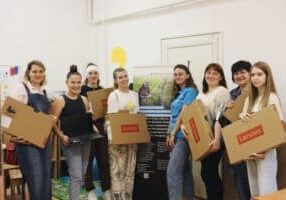
![Dorcas 1 [Slapeloze nachten] Dorcas 1 [Slapeloze nachten]](https://dorcas.org/wp-content/uploads/bb-plugin/cache/Dorcas-1-Slapeloze-nachten-1-300x180-landscape-bc7c7c1fe494b5cf3f276d58ab94c0b7-.jpg)
